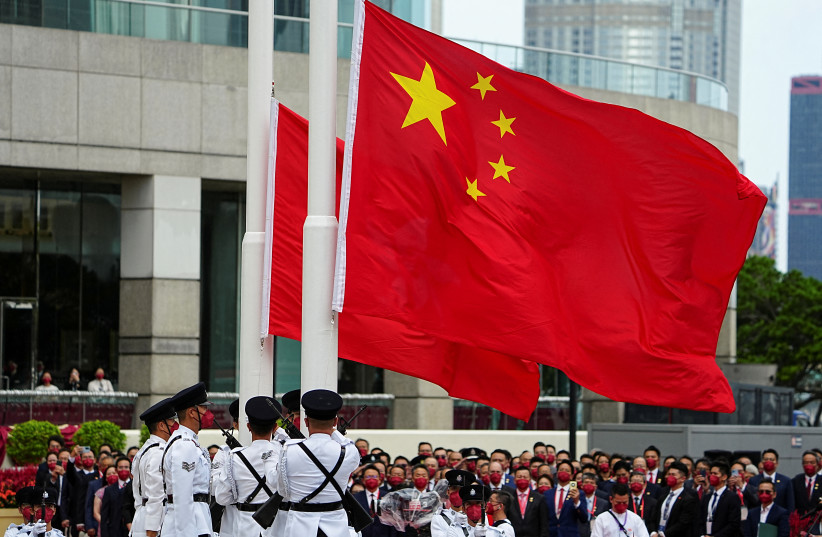Israel should do more to protect its technology and research from the risks of Chinese investment and involvement, US Deputy Assistant Secretary of State for Global China Issues Dr. Jung H. Pak said on Thursday, at a conference hosted by the Sino-Israel Global Network and Academic Leadership (SIGNAL).
Pak encouraged Israel to further “develop risk mitigation.”
“Israel has started the process of investment screening. That is a good first step,” Pak said via video link. “We would like to see more action.”
The Security Cabinet decided earlier this year to make more stringent rules for foreign investments in tech companies, including requiring all such investments to be reviewed by the committee on the matter.
Pak pointed out that China poses a security threat in that it has “entered Israel’s thriving hi-tech sector…investing hundreds of millions of dollars” in areas such as artificial intelligence, cybersecurity and robotics, and In through “joint research developed with foreign funds or with foreign universities, but also through theft and financial fraud.”

“China explicitly seeks to break down barriers between the civilian and military tech spheres,” she warned.
At the same time, Pak said the US “does not wish for Israel and others in the region to decouple from China…We want to promote trade in ways that do not threaten our security and human rights values.”
“We want to preserve the international rules-based system and commercial norms…to protect shipping and supply chains,” she stated.
Pak also said that any actions that China was to take against Taiwan could negatively impact Israel and its tech sector, because of Taipei’s dominance in manufacturing semiconductor chips.
Chinese Ambassador to Israel Cai Run was supposed to address the conference but pulled out at the last minute because of COVID-19 restrictions.
Israeli reticence can harm ties with US
Also at the conference, Director of the Program on Arab Politics at the Washington Institute and former US assistant Secretary of State for Near Eastern affairs David Schenker warned that Israeli reticence to safeguard itself against risks posed by China could harm relations with the US.
“We’ll get past [MK Itamar] Ben-Gvir, but a problem with China may be an irritation…depending on how [Israel] handles it,” he said.
Schenker pointed out that the US-Israel Strategic Dialogue on Technology, launched in July, addresses foreign investment and “trusted tech ecosystems,” among other matters, and argued that “the implication is this is all about China.”
The dialogue can provide a “better mutual understanding of what the guardrails are and what [Israel] can do with a country defined as the number one strategic challenge for the US,” Schenker said.
“We are not dictating to Israel anything, but we have priorities,” he added.
